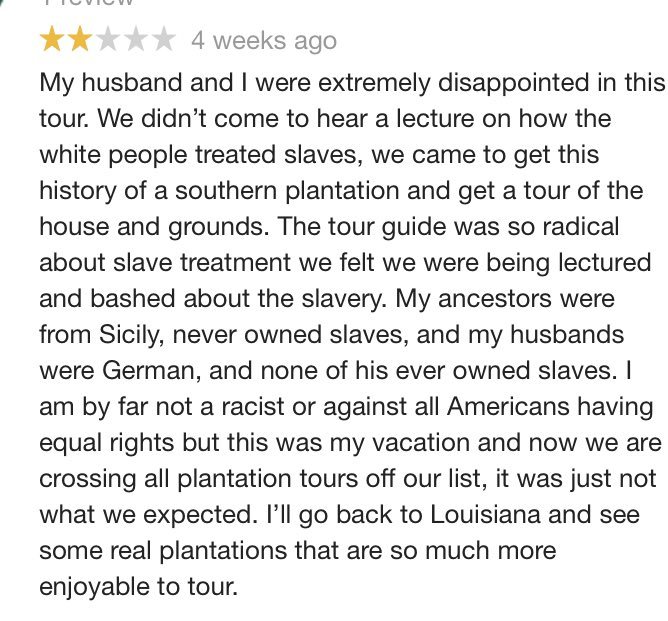
Dear Disgruntled White Plantation Visitors,
Hi! My name is Michael W. Twitty and I’m one of those interpreters who has watched you squirm or run away. I’m not a reenactor, because G-d forbid I reenact anything for the likes of you; but I am an interpreter, a modern person who is charged with educating you about the past. I take my job seriously because frankly you’re not the one I’m centering. I’m performing an act of devotion to my Ancestors. This is not about your comfort, it’s about honoring their story on it’s own terms in context.
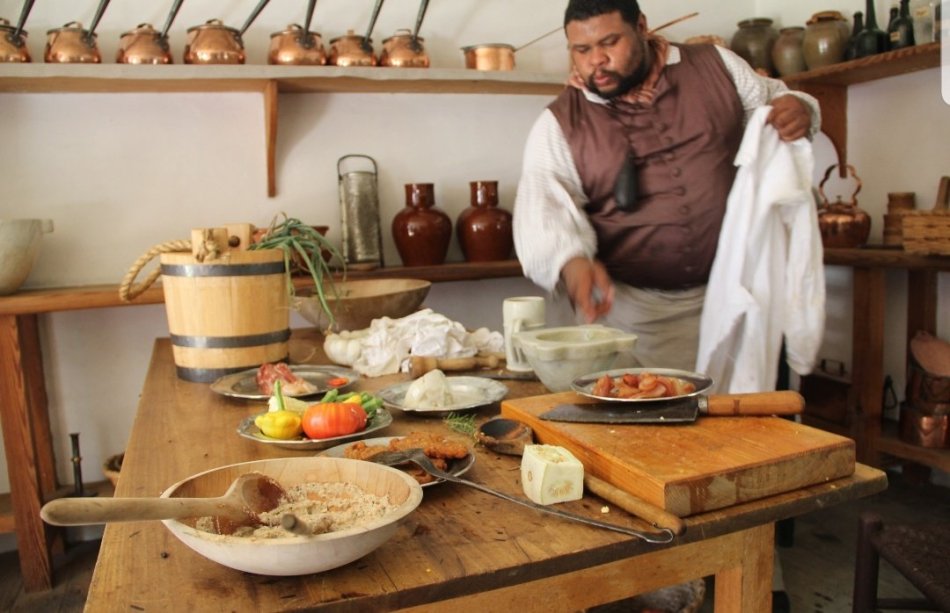
For over a decade I have been working towards my personal goal of being the first Black chef in 150 years to master the cooking traditions of my colonial and Antebellum ancestors. Five trips to six West African nations and more on the way, and having cooked in almost every former slaveholding state beneath the Mason-Dixon line, my work is constant, unrelenting mostly because I have to carve my way through a forest of stereotypes and misunderstandings to bring our heritage to life. I also just want to preserve the roots of our cooking before they’re gone.
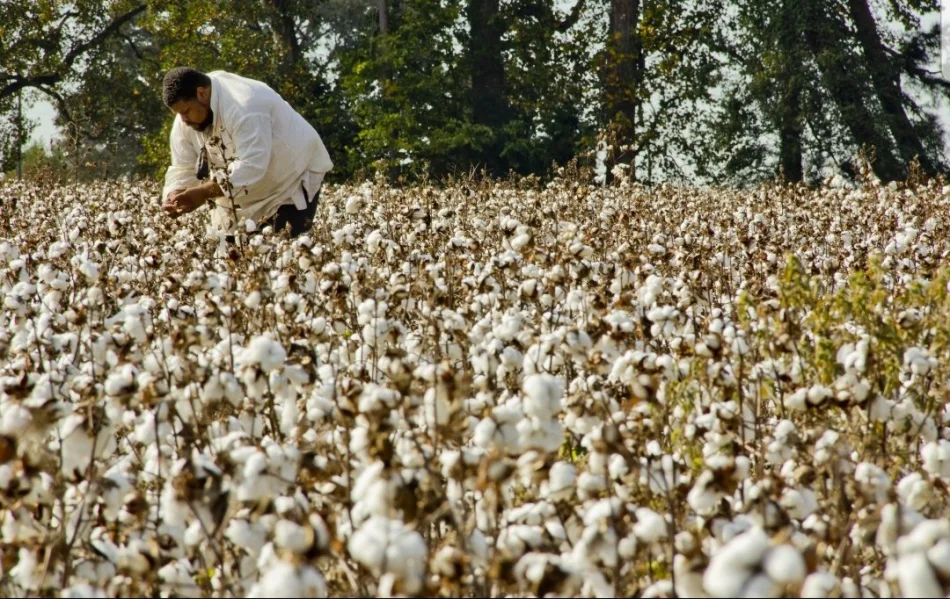
Because minds like yours created the “happy darky,” some people of color are ashamed of my work. Although I am none of the things they imagine me to be, I can understand why they are confused about what I (and many people like me) do. Once upon a time folks like yourselves wanted to have a national Mammy monument on the Mall, to remind us about the “proper” role we were meant to occupy and to praise our assumed loyalty. No, our forebears are the real greatest generation. With malice towards none they constantly took their strike at freedom and yet their heroism was obscured because you guessed it, white supremacy, had to have the final say.
Southern food is my vehicle for interpretation because it is not apolitical. It is also drenched in all the dreadful funkiness of the history it was created in. It’s not my job to comfort you. It’s not my job to assuage any guilt you may feel. That’s really none of my business. My job is to show you that my Ancestors, (and some of yours quiet as its kept…go get your DNA done…like right now…talking to you Louisiana and South Carolina…) resisted enslavement by maintaining links to what scholar Charles D. Joyner famously called a “culinary grammar” that contained whole narratives that reached into spirituality, health practices, linguistics, agricultural wisdom and environmental practices that constituted in the words of late historian William D. Piersen, “a resistance “too civilized to notice.” Want to read about it? Since you already know I’m a literate runaway from the American educational system, I wrote an award winning book called The Cooking Gene. Like Eddie Murphy said, “but buy my record first…”
(BTW it’s not a cookbook its the story of my family told through culinary history from Africa to America and from enslavement to freedom.)
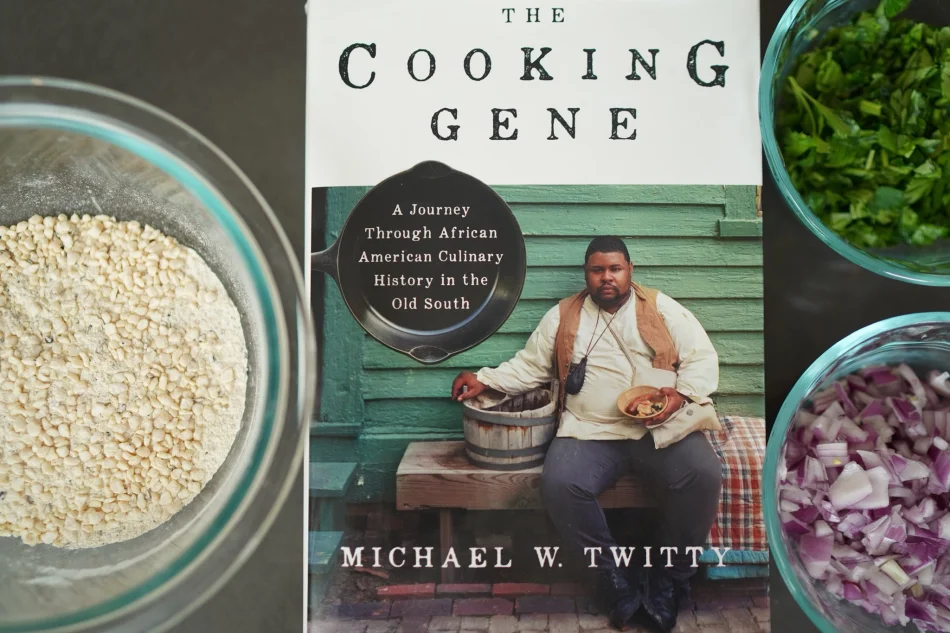
What’s most telling about the above quote and others is how blithely unaware you are about the real American struggle for freedom. When you’re in one of those hot ass kitchens watching me melt you are secretly telling yourself you’re glad you’re not me–or them. And yes, I’m about to go Designing Women/Julia Sugarbaker (in that pink hoop skirt) on you…so you might want to run now.

Thanks to a viral tweet the whole country sees what me and my colleagues have seen for quite some time. We get it. You want romance, Moonlight and Magnolias, big Greek Revival columns, prancing belles in crinoline, perhaps a distinguished hoary headed white dude with a Van Dyke beard in a white suit with a black bow tie that looks like he’s about to bring you some hot and fresh chicken some faithful Mammy sculpture magically brought to life has prepared for you out back.
The Old South may be your American Downton Abbey but it is our American Horror Story, even under the best circumstances it represents the extraction of labor, talent and life we can never get back. When I do this work, it drains me, but I do it because I want my Ancestors to know not only are they not forgotten but I am here to testify that I am their wildest dreams manifest.
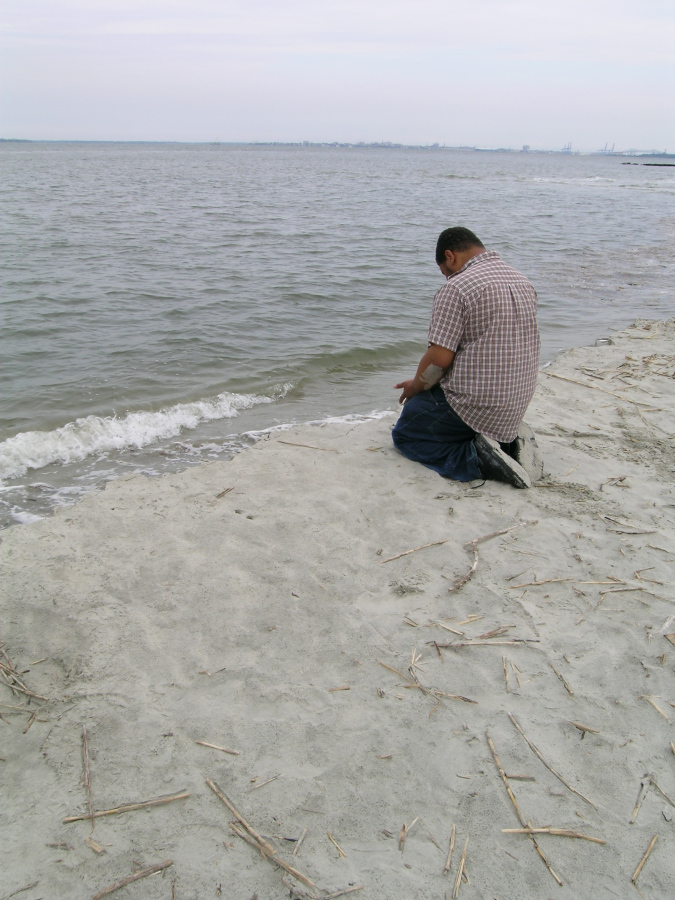
While your gall and nerve anonymously preserved for eternity online is cute, I thought you might want to be further disturbed not by the actions of the dead, but by those of the living:
Like remember when you took the form of the docent in Virginia who told me, “Look, you don’t have to go on about the history, just tell them you’re the cook and be done with it…”
Or remember when you waltzed in with a MAGA hat and told me “I know what it’s like to be persecuted like a slave. I’m an evangelical Christian in America. Its scary!” (More power to you for your faith, but that analogy? Or skewed perception? Or saying that nonsense to my face with the assumed confidence that I wouldn’t respond?)
My personal favorite was when I spilled some of the contents of a heavy pot of water as the light was dying and you all laughed and one of you said…and I could hear you…”This boy doesn’t know what he’s doing.”
“Boy.”
I was exhausted. I had been cooking over an open hearth for 7 hours. One enslaved cook in Martinique was thrown alive into an oven for burning a cake. How do we know? His mistress calmly showed his charred remains to her guest after the meal. Spilling or burning food could have meant my ass.
How about that time you asked me if I lived in that kitchen with the dirt floor. Or when you said I was “well fed” and had “nothing to complain about.” “This isnt sooo bad. White poor people had it just as bad if not worse.” I do so love it when folks like you ask me “What are you making me for dinner?”
In South Carolina there was that time four of you walked in grinning and salivating as you often do, and were all ready to be regaled of the good old days until a German tourist scratched your record. He said, “How do you feel as a Black American, dressing like your Ancestors and cooking and working this way?”
You started to frown.
I said, “Slavery was colloquial and discretionary, one story doesn’t tell all. But its important to remember that our Ancestors survived this. Survived slavery.”
He pushed me further. You gestured towards the door.
“How do people feel about slavery?”
My retort was fast. “How do you feel about the Shoah? How do you feel about the Holocaust?”
The German said, “The Holocaust was a terrible thing and never should have happened. We were children when Germany was coming out of the ashes. But it is a shame upon our nation.”
As the four of you turned to leave, I got in a good one: “That’s a phrase you will almost never hear some white Southerners say. “Slavery was a terrible thing and never should have happened.”
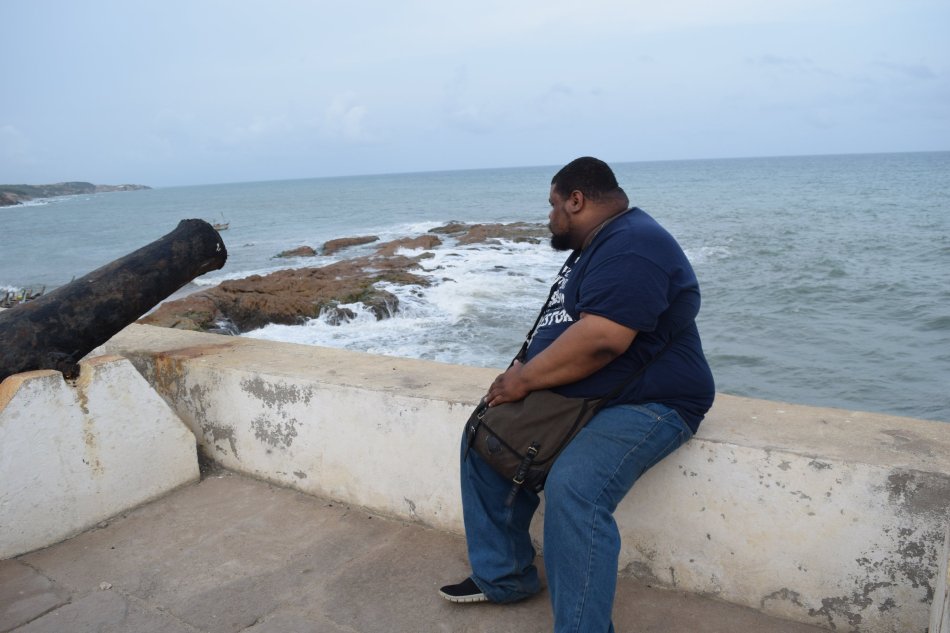
But…the South is not to be indicted on it’s own. Without Northern slave trade captains, merchants, mill owners, and even universities that had stock in the enslaved, the Southern economy could not have flourished. (And please miss me with “you sold your own people..” the corporate identity of Blackness was not a feature when African, Arab and European elites and merchants conspired during the time of the slave trades…you cant learn everything from the crossword section of StormFront…)
Furthermore your immigrant ancestors would never have had a land of opportunity to come to. Or a people to walk on as your folks climbed towards whiteness. The most valuable “commodity” in Antebellum America during the years of exponential growth was not wheat, corn, tobacco, rice or even cotton. The most important commodity of the mid 19th century in America, was the Black child, and behind the children, the body of the Black woman.
Dont get me wrong. This isnt about being anti-white or ignoring other people’s traumas. But if you do think I don’t like you because you identify as white that’s not it. I suspect what you might be doing—identifying with heathy slices of weaponized racial power, privilege, attainment and achievement obtained in a hierarchical exploitative American dream between two pieces of unexamined whiteness, I guess the plantation isn’t the ideal place for you to escape.

Facing my/our past has been my life’s journey. It’s also been at times devastating and painful. But reflection in no way equals one second in the lives of the enslaved women and men whose blood flows in my veins. I had the privilege of rediscovering my roots on a North Carolina plantation at a dinner we prepared for North Carolinisns of all backgrounds. Knowing that the enslaved people who once occupied those cabins could never have dreamed of that rainbow of people sitting together as equals in prayer, food and fellowship while my Asante and Mende roots were being uncovered after centuries of obfuscation was for me a holy moment.
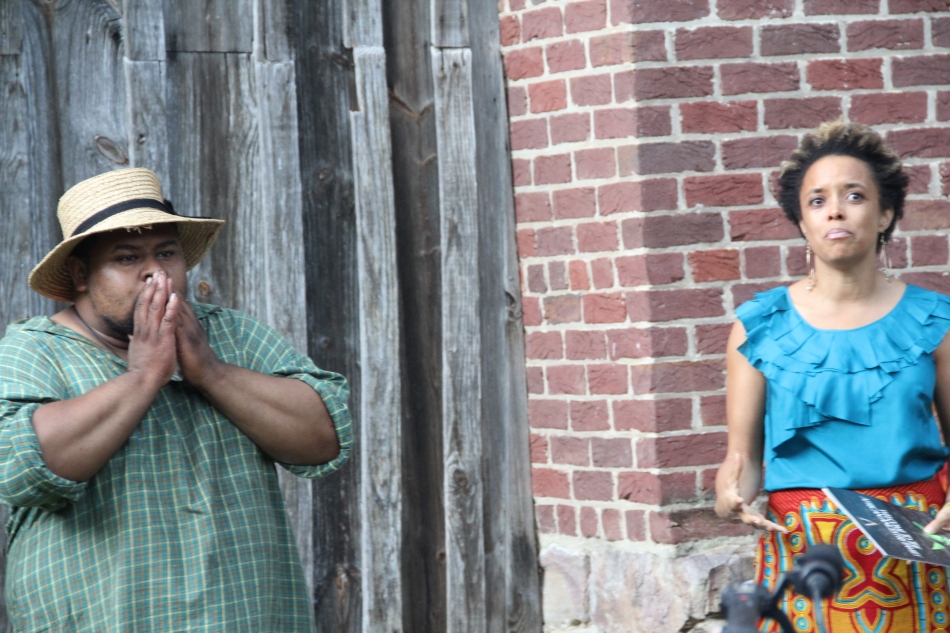
You miss out on magic like that when you shut down your soul. Going to what few plantations remain, your job is to go with respect and homage and light. You know, like I felt at the Tenement Museum and learned about the first American experience of those who passed through Ellis Island. Your job is to be thankful and grateful. Your job is to not just hear but listen. Your job is to know that Black lives mattered then just as they do now. Your job is to face the reality that hardships and hurt have been passed down from the American Downton Abbey, the American plantation.

Rape happened there..to the point where almost every African American with long roots here bears that evidence in their DNA. Theft of our culture. Forced assimilation. The breaking up of families…like all of us. Of course there was economic and legal exploitation and oppression, the effects of which have never been extricated from the American story.

But because enslavement was so damn fuzzy…we forget that those maudlin moments of blurred lines passed down by sentimental whites were purchased with pain. I tell my audiences that enslavement wasn’t always whips and chains; but it was the existential terror that at any moment 3/5ths could give way to its remainder, and unfortunately often did.
Guilt is not where to start. If you go back start with humility. Have some shame that NONE of us are truly taught this. Be like the working class white lady whose family I met in Louisiana who brought her young kids because she “wanted them to know the whole story, the story of American history is Black history.” Too bad she ain’t going viral. Wherever you are my cousin, I salute you.
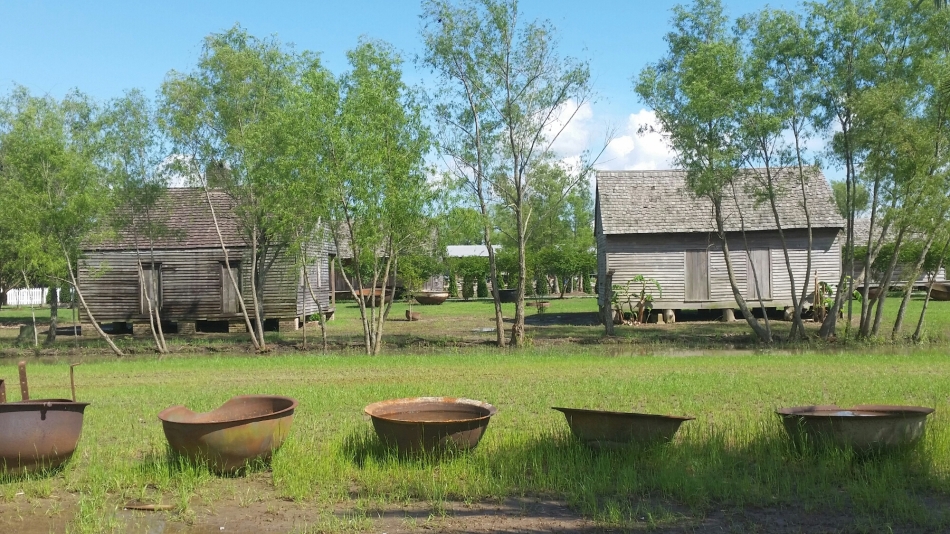
Right now we need people to exercise their compassion muscle over their dissatisfaction or disappointment. Right now we need people to see the parallels. Right now we need people to remember the insidious ways history repeats itself. Right now we need to be better humans to each other. Right now we need people to remember the righteous who sacrificed so we could tweet and leave awful online reviews.
Y’all come back now y’here?
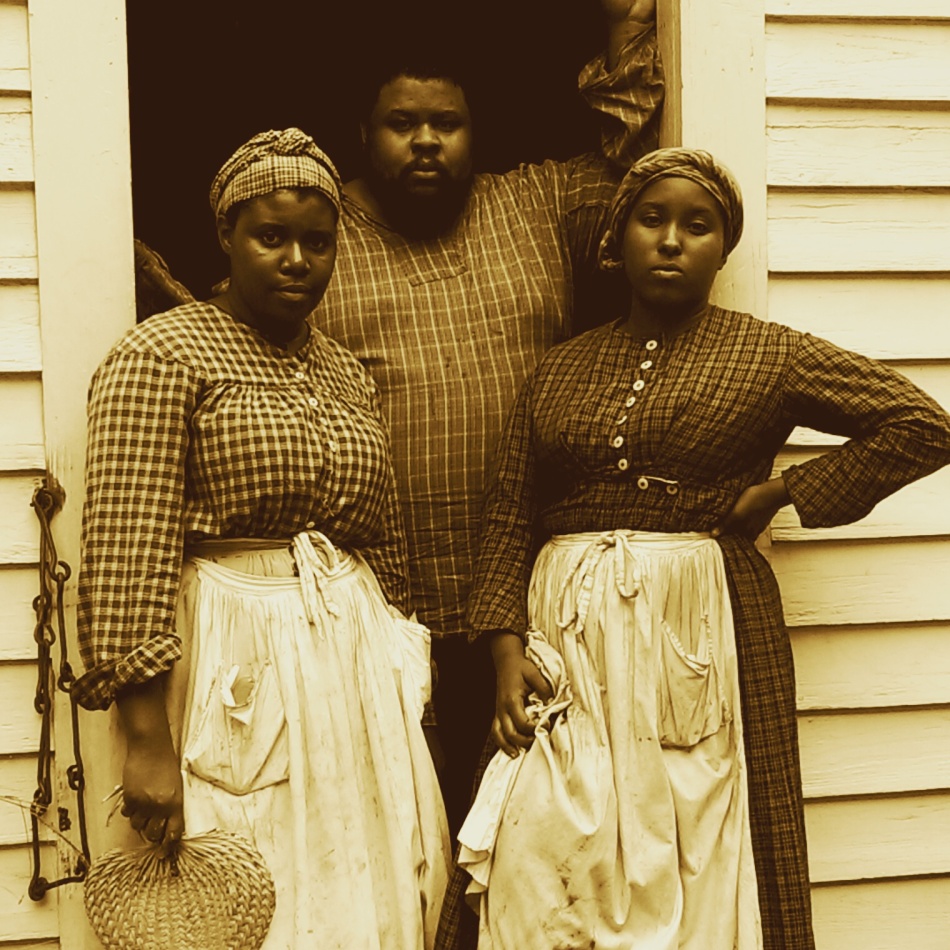

Well said, sir, and it needed to be said!
LikeLike
Thank you Michael
LikeLike
Excellent post. Thank you.
LikeLike
Pingback: American Downton Abbey vs American Horror Story / Boing Boing ⋆ Tecnologias Online
I’m super grateful for the disgruntled white tourists, because now I’ve heard of Michael Twitty. Keep sharing the truth! (And the food!)
LikeLiked by 1 person
thank you David, I totally agree with your comment.
LikeLike
I agree also. As I become more educated and have a greater understanding my heart hurts more.
LikeLike
I wish I was there to hear what he said this is our history we all need to know the whole story just not the slave owners side but everything we could learn might help those visitors learn there is more to life
LikeLike
Thank you….keep spreading truth to light the world!!!
LikeLike
Thank you for your sensitive yet outspoken article. Hopefully many will appreciate and share your analysis.
LikeLike
Thank you for the work you do.
LikeLike
Thank you!!
LikeLike
Listen. That was a read for the ages! I loved every bit of it and appreciate you imparting your vast knowledge. Keep up the great work brother.
LikeLiked by 1 person
This man’s life work is brilliant.
Thank you.
LikeLike
Well, said. Our Country should stand up and say this is a stain on our past and should never have happened and will NEVER happen again. Unfortunately, the current regime is not the one to do that.
LikeLike
While I find the “viral post”, in actuality, to be a Vile Post it maybe the BEST THING to happen on Facebook since the “Share” button. Ignorance doesn’t stand up to Truth, once the Lightits it. Thank you, sir, for your dedication to your work & passion. I think it’s fantastic that you have found a vocation that allows US to share your Mission.
LikeLike
Mr. Twitty, we have been a fan of yours for several years now. Your story is our story, and one that we are still learning about. How you answered the people, who want a “movie like experience” at the plantations, could not have been better. Peace and Love Always. William and Edna McIver.
LikeLike
Peace unto you William and Edna!
LikeLike
Well, well said my brother. Very good and needed to be said article. Hope some of the folks who visited the plantation, came away with knowledge and humility.
LikeLike
My family is from Louisiana, and you just beautifully encapsulated why I decline (politely at first and with responses that offend some of my relatives if pushed) visits to the Antebellum homes and such these days. They spend so much time waxing poetic while dismissively waving to the replica shacks and saying, “Oh, and those were the Slave quarters.” Quarters? Really? Like it was some sort of throwaway. I hope some of that has changed, but I am not at all comfortable ooh-ing and aah-ing over a building or a way of life that basically entirely dismisses or ignores the backs of the people it was built on.
LikeLike
I recently took a tour of Huguenot Street in New Paltz, New York. During the tour they brought us into slave quarters. It was a profound and painful moment as they handed around a heavy metal slave collar with the surname of the “owner”. Thank you for educating people with information not discussed in history classes.
LikeLike
God bless you and I thank you for sharing your wisdom. Speak the truth and shame the devil.
LikeLike
Unbelievable! The inhumanity of people! Does anyone go to Auschwitz….and then complain about hearing about how human beings were exterminated there?
LikeLike
What a testimony of history lived through your passion of foods
LikeLike
Thank you! I avoided plantation tours when traveling in the South for fear of “Gone with the Wind” nostalgia-mongering that attempted to ignore and erase the deep pain of the slaves who labored and died there. But I’d take any tour at a place where you are an interpreter. Please keep speaking your truth!
LikeLike
Exactly.
LikeLike
Son you said it all and eloquently. God bless you.
LikeLike
Thank you. I wept at this. I have visited plantations in Georgia and not had as visceral a reaction as I have to your words. Keep saying them.
LikeLike
Very well said Michael !So informative and interesting.Im Canadian and hope to be able to visit and meet such an interesting man as you ! Im a great cook and share our traditional Acadian dishes for future generations to know and cook.Thank you for the good work ! 🙂
LikeLike
Would love to
LikeLike
Thank you for speaking up and with so much clarity and brilliance. I look forward to visiting Whitney Plantation.
LikeLike
Powerful! Thank you.
LikeLike
This article really moved me emotionally. My family has been here since the 1700s bought here from the shores of Benin/Togo of W. Africa. Thank you for such a wonderful heartfelt article.
LikeLike
Thank you for what you are doing!
LikeLike
Thank you Linda!
LikeLike
I remember eons ago when the Roots mini series debuted on TV. There was outcry about the treatment of the slaves being ‘too real’ or ‘too horrific’ for television (and they didn’t show much back then). I say good for them for showing how brutal slavery was. White people, regardless if their families owned slaves or not, need to acknowledge slavery and its brutality. If you go to tour a Southern Mansion/Plantation, you need to know about ALL the people who lived there, not Hollywood’s romanticized version. Thank you for being a living historian and teaching those who need to see both sides of life on a Plantation.
LikeLike
Thank you 🙂
LikeLike
“Because minds like yours created the “happy darky,” some people of color are ashamed of my work. ”
So you’re a mind reader now? What an amazing power you have.
America fought a war to end slavery. 600k Americans dies in this war. It was indeed a pox upon humanity and our nation, and people died to end it.
The Holocaust was a specifically brutal and barbaric time for the Jewish people. Burned alive. Tortured. Property was seized and pushed into forced labor camps, where many starved to death.
American slavery is not the same, not even close, and not even in your overly fertile imagination.
The first slave owner was a black man. Over 3000 blacks owned slaves, and so did Native American tribes.
But it’s white America, regardless of any connection to slavery or not that has to come to terms with slavery?
I think the person that has to come to terms with their own bitterness and bias is you sir.
LikeLike
Who am I talking to?
The disgruntled visitor. Not all white people or white Americans.
The first slaveholder was not a Black man although Antonio did have white and Black servants. None were enslaved.
Many of those “Black slaveholders” had to hold family members in bondage to thwart laws. Others were so mixed as to almost pass for white. They did not see themselves for the most part as belonging to the Black community or condition.
I taught the Holocaust. I’m a Jew. I taught 7th graders about the Holocaust. The Nuremberg Laws began when Nazis looked to German policies in Namibia and Jim Crow laws in the American South.
Millions of enslaved people were tortured and executed and worked to death across the Americas. King Leopold murdered millions in the Congo. How dare you even begin to play oppression Olympics. Nobody wins.
I’m at peace with my perspective. If I was as biased or as bitter as you imagine I would never have become the credit to my Ancestors they told me I have become. You’re incredibly smug and because your arrogance and sense of condescension is so sparkling I’ve decided to publish your response, just so I could have the pleasure of dragging you on the platform that…wait for it…I have the say on.
Bless your heart.
LikeLiked by 1 person
A lot of opposition to slavery in the North was economic, not due to concern for the enslaved. Free labor could not compete with slave labor.
The Republicans at that time who opposed slavery for moral considerations were called RADICAL.
LikeLike
I have no clue why you are replying to me. Regardless of who owned slaves, or the colour of the slaves skin (enslaved Irish), Slavery is something many white people in America have not come to terms with, and refuse to discuss in any form. The Holocaust? Yes. Interned Japanese? No. Slaves or slavery in general? No. And just be a person of colour in the US and see how there is till a a HUGE imbalance in medical care, pay scales and the way they are treated by law enforcement. So yes, it is still White Amercia in many ways.
LikeLike
Rock on.
LikeLike
Have shared your article on facebook… can’t afford to go visit your plantation and I call it your’s because you are the cook and the cook rules the house in my book.
LikeLike
I am so sorry I missed you when you came to Louisville Kentucky, my husband’s family were held at Farmington plantation in Louisville off Bardstown Road. Glenn has passed away but we are still telling the story of the family Your contribution on this 550 acre hemp plantation. Thank you very much for the work that you do if we don’t have our history who will accurately tell our story.
LikeLike
Powerful response…
LikeLike
Thank you George
LikeLike
Thank you, Michael. Adding your book to my Amazon wish list!
LikeLike
Thank you for your words and your work.
LikeLike
Pingback: Mitch Wagner's Blog
Thank you for your words. For thirty years I have taught in a large urban system. Several years ago, my sixth grade English students and I were ruminating on the question: if we could go back in time, what would we change. Their answers revealed their age in their consideration of more recent historical events such as the assassination of Dr. King or of Malcolm X. My answer, though, looked further back. My response was that I would go back to whatever first meeting it was that decided that kidnapping people from Africa to serve as slaves in order to announce that this was a terrible idea. My students paused. . .and gave me a standing ovation. All of this should never have happened. However, since it has, then the shame and the after-effects must be dealt with.
LikeLike
We met with the king of Porto Novo in Benin. There were wars between those who were anti slave trade and those who were pro. Those who were pro got those guns. We have to use these historical lessons and know to bond ourselves with the good. Justice, justice shall we pursue.
LikeLike
As an interpreter at a Historical house museum, albeit from a later period, I applaud you for your continued efforts to tell the real story, the uncomfortable truths. I cannot wait to visit the plantation in person and learn more.
LikeLike
Thank you Christi
LikeLike
Thank you for this, and for continuing to teach.
LikeLike
Thank you for this. This about understanding, accepting, reclaiming, and transcending our past, and building a future based on our shared humanity. I’m grateful your work, your words, and your willingness to share the pain — of the history of the slave trade and its effect on African culture and people, and the pain of modern ignorance and callousness — that you experience through your work.
LikeLike
I really appreciate this.
LikeLike
I am listening to the audible version of your book. Thank you very much for telling it. I find it incredibly informative and have recommended it to my friends.
LikeLike
I’m listening to your book on Audible. Thank you so much for telling it. I am somewhat glad the disgruntled white plantation visitors posted their review because it lead me to this article and your book. I find it enlightening and informative, though listening to it does make me hungry. I have suggested it to my friends.
I look forward to one day visiting a plantation where an interpreter such as you works and provides accurate information.
LikeLike
Thank you!
LikeLike
Well written and appreciated. Thank you for doing what you do!
LikeLike
This made me cry..and I am going to order your book. As I get older, I find myself getting so angry with people who refuse to understand that our history was not Disney. And I am less concerned with what others think when I voice my opinions. Kudos to the lady who brought her kids to learn the history that is glossed over, at best, in schools. I love you pr story, and wish nothing but success.
LikeLike
Beautiful, beautiful piece. I deeply honor this man and his life’s work. (It’s hard to understand both the breadth and depth of ignorance still circulating in this country—the inability to acknowledge our national history and its continuing legacy. Either accept the strong brew of history and drink it with compassion and self-reflection, or get the hell out of the kitchen.)
LikeLike
“I am their wildest dreams manifest.” That’s lovely – and yes, you most certainly are. Very powerful, sir. Well done.
LikeLike
Thank you, Michael, for those powerful words. I would be honored to hear you speak one day. Your comments about DNA struck a cord with me. When I was researching my ancestry I was saddened to find out through census records that some of my ancestors did own slaves. When I had my DNA done I found that I have ancestry from Senegal, Africa. I hope that one day I will find out who that ancestor was but that is doubtful. As you said, some things in our history are kept quiet. Keep doing what you are; it is very important to our American history.
LikeLike
We are family.
LikeLike
I’m listening. And I will teach my sons to listen. I will witness your experience of this. I will sit.
LikeLike
And we will share.
LikeLike
If anyone has a right to be disgruntled, it is you and untold numbers of others that continue to work towards acknowledgement, appreciation, understanding. Yet you move forward “With malice towards none (and) constantly (take) your/their strike at freedom . . .” As a sixty something white male, I see my generation’s contribution (our current political environment) in the light of what you’re doing – – we have a long way to go. Thanks for your efforts. Keep working. You ARE making headway.
LikeLiked by 1 person
This was a wonderful piece. There’s feeling to it, but you don’t go crazy trying to express how YOU feel to the point of making that the only thing I get from this, I get your feelings and thoughts and sooo much more. I wish that there were more people who would be willing to understand history, the good and the bad of it, and more people willing to save certain parts of it before it’s lost forever. I love going to places like you’ve been and getting ALL the background and information I can about the place and it’s people. ALL of them. I will be looking to get your book very soon, and on a side note, if you do make a cookbook I will grab that up very quickly! Thank you so much for writing this.
LikeLike
Thank you for writing this and for all the work you are doing to preserve your ancestors’ heritage.
LikeLike